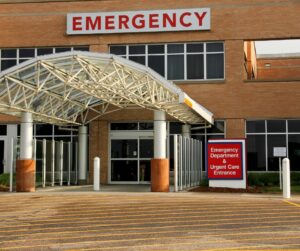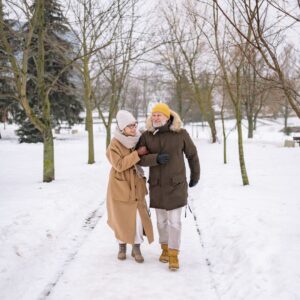The population of older adults in our state and throughout the nation is growing faster than ever before.
By Tim Mitchell, Fund Development Coordinator, Senior Care Partners P.A.C.E.
This growth creates a number of issues in the area of geriatric care. Not only does our rapidly growing senior population need specialized care for the physical conditions related to aging, but there is also an equally expanding need to care for the behavioral health of this same population. Behavioral health focuses on a person’s emotions, behaviors and biology relating to their mental wellbeing, their ability to function in everyday life, and their concept of self. A person struggling with behavioral health may face stress, depression, anxiety, relationship problems, grief, addiction, mood disorders, or other psychological concerns.
Dementia is also a behavioral health concern and is a common diagnosis among the senior population. A significant percentage of older adults are dealing with some form of this condition which can be broken down into various types including Alzheimer’s, vascular dementia, dementia with Lewy Bodies, frontotemporal dementia, Huntington’s disease, and others. Alzheimer’s disease is the most common type of dementia, affecting roughly 190,000 Michigan adults 65 and older and this number is expected to expand to 220,000 by 2025.
Recognizing this growing healthcare need, Senior Care Partners P.A.C.E. launched a Behavioral Health initiative in 2019, led by Lisa Woodruff, a Nurse Practitioner with specialized training in geriatric behavioral health, to better help participants with behavioral health needs. An internal Behavioral Health Task Force has also been established to solidify the overall strategy and policies that will make the Behavioral Health Team as effective and efficient as possible.
More specifically, the Task Force is responsible for creating a dynamic platform on which the behavioral health services will be established going forward. Woodruff said, “It is our goal to integrate the medical health with the behavioral health of our participants to become as integrated as possible.”
According to research from the University of Minnesota Medical School, 60-70% of patients who have co-occurring physical and behavioral health issues will not follow up with treatment for their behavioral health concerns. The findings of this study concluded that a significant reason patients did not follow through with a behavioral health professional was because the behavioral health professional was not located in the same office as the primary care physician. Senior Care Partners P.A.C.E. is bridging this gap by now providing physical and behavioral healthcare under one roof. According to Woodruff, “By integrating these services we have the opportunity to provide a more comprehensive approach to the care of our participants. This sets us apart from other models of care.”
Dr. Perry Westerman, a specialist in Internal Medicine, Psychiatry, and Psychology, stated, “There is a real need for increased resources in terms of mental health services to older adults within our community. We recently conducted a survey of mental health professionals in Kalamazoo County. Of those surveyed, 74% indicated there was a moderate or serious problem with older adults being able to access mental health care. That number is substantial. Over two-thirds of our mental health providers who responded to the survey believe this is a significant issue in our community. I have been working in a limited capacity with Senior Care Partners P.A.C.E. for the past four to five years and I believe the PACE model is uniquely set up to provide important behavioral health care in conjunction with the outstanding socialization aspect of that program. Starting this behavioral health initiative is the very thing our community needs right now as is evidenced by the survey results.”
According to Woodruff, there are a lot of undiagnosed mental illnesses in this age group in general. “It is our job to make sure we are recognizing these issues early so we can implement the appropriate interventions before it worsens.” She continued, “Many seniors suffer from adjustment disorder because they are at the stage in life where they are losing people who were once close to them. They are also losing their independence and they often lack a sense of purpose. Adjustment disorder is often accompanied by depression and anxiety, so it becomes a combination diagnosis.”
She added, “Another very important contributing factor to improving behavioral health in older adults is the reversal of social isolation. As people age their world changes significantly. Often family is less connected and many of their friends are deceased. By providing socialization opportunities at our day centers many individuals who were experiencing various levels of anxiety or depression begin to thrive once again.”
One Senior Care Partners P.A.C.E. participants, prior to becoming a participant, had literally given up on life because she was told she would never walk again after being non-ambulatory for three years. Traditional forms of healthcare had discontinued their efforts to help her regain her mobility. Despondency, anxiety and isolation quickly set in and she discontinued caring about her physical appearance or any form of self-care. She, as well as her entire family, believed she would be bed-ridden for the remainder of her life.
Her family subsequently discovered Senior Care Partners P.A.C.E. as a possible solution. Upon enrollment, she stated her goal was to walk again. Our entire Interdisciplinary Team rallied around her to support her with her all of her goals. Within a few months she was walking with a walker, attending the center multiple times a week, taking part in the center activities, and making new friends. During this time she also began caring more for herself. She started putting on makeup every day, brushing her hair, and taking pride in how she looked. Today she is very quick to tell people, “Senior Care Partners P.A.C.E. changed my life!”
Woodruff said, “Providing this type of comprehensive care makes a huge difference in the mental and physical wellbeing of our participants. This kind of experience is repeated over and over again throughout the organization and it is what makes Senior Care Partners P.A.C.E. such a unique and beneficial program for older adults, especially those suffering with behavioral health issues.







